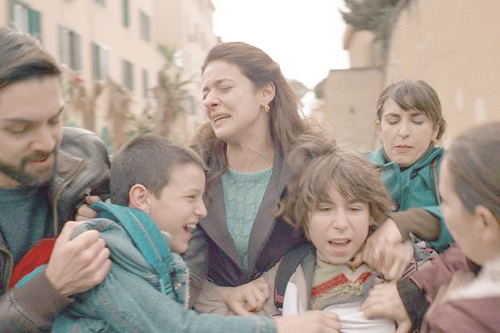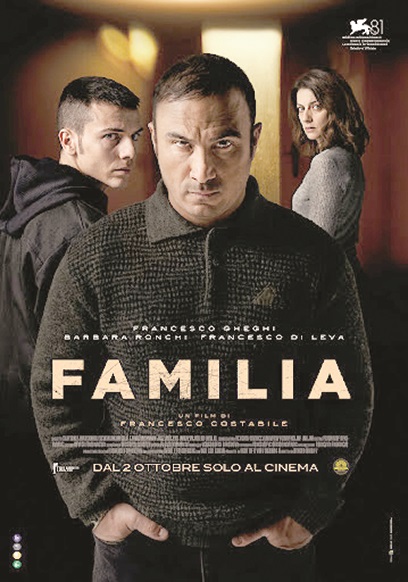“Familia” is Italy’s Selection for the Oscars
TORONTO – Francesco Costabile’s drama Familia was recently selected as Italy’s candidate for the Best International Feature Film category at the 98th Academy Awards. The biographical drama is based on Luigi Celeste’s memoir “Non Sarà Sempre Così” and chronicles his youth as a far-right militant, with a criminal and abusive father. It is a deeply personal and emotionally gut-wrenching story that boasts exceptional performances from Francesco Gheghi, Barbara Ronchi and Francesco Di Leva. Yet, few have seen or even heard of it.
It is not as though the film is not deserving of a chance to represent Italy at the Oscars. It is. And the selection process, as usual, was overseen by the Italian Film Body Anica, comprised of a committee of very credible peers. Industry professionals including award winning filmmakers like Gabriele Muccino (The Last Kiss), Micaela Ramazzotti (The First Beautiful Thing), and Stefano Sardo (The Invisible Boy). But Costabile’s film Familia was only in theatres for three weeks, earning a measly $420k at the box office.
Citing a poor theatrical showing might be off-putting to those who have happily relegated their cinema to the doldrums of small screen scrolling, viewing and internet streaming. But Italy’s history as a leader in cinema surely deserves more than the minimal effort by modern distributors to keep it so.
How can a film – in this case Familia – be anointed by industry professionals to vie for the biggest film prize in the world, while having had virtually no domestic audience? To boot, the film had no U.S. release.
While Italian films travel well within a handful of European markets, their market share in the industry’s two biggest marketplaces – Asia and the United States – is not only lacking, but also practically non-existent. Italian films in the Asia-Pacific market hold a 0.01% market share, and in the U.S., 0.05%. The poor numbers are down to several factors, including an ever-changing exhibitor landscape and the Big Studio hyper-focus on blockbuster films.
But it is also true that many Italian filmmakers are no longer telling the sort of stories that pack theatres. Take Life is Beautiful (1997), Benigni’s survival saga about a family imprisoned in a concentration camp. It won the Best Foreign Film Oscar after taking home $57m domestically. Its global earnings extended to $230m, while breaking the then-record for highest grossing foreign film in US history. Other films like Il Postino (1994) took home $26m in the US, while Cinema Paradiso (1988) earned $15m.
To date, aside from Life is Beautiful, Italy’s three highest grossing films of all time (Quo Vado €65m, Sole a Catinelle €56m and Tolo Tolo €42m) have had no U.S. box office release. And they were all Checco Zalone films made through Italy’s largest Commercial Broadcaster (Mediaset).
To put it bluntly, Italy’s most popular film products had zero market appeal in America. The inverse of that would be if Avatar, The Avengers and Titanic had no audience in Italy. Unthinkable!
Images courtesy of Medusa Film
Massimo Volpe is a filmmaker and freelance writer from Toronto: he writes reviews of Italian films/content on Netflix






